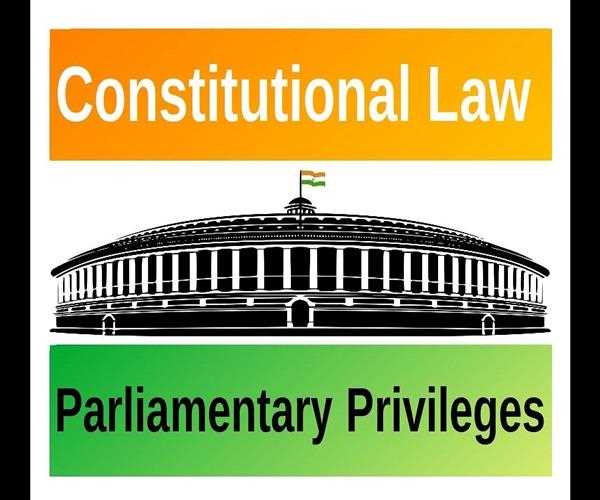Parliamentary privilege
Feature of parliamentary privileges in the Indian Constitution inspired from the British Constitution. The British Constitution is a source of other abstracted features like parliamentary government, the rule of law, legislative procedure, single citizenship, cabinet system, prerogative writs, and bicameralism.

The Indian parliament’s privileges are, among of other provisions that comes under Article 79 to Article 122 of the Indian Constitution.
Parliamentary privileges mean exceptional right or advantage that is granted to the members of legislatures worldwide. In most democratic countries, legislatures and their members enjoy certain privileges to function effectively. Privilege though part of the law, to a certain extent an exemption from the ordinary law. It would correct to say that privilege is to Parliament what prerogative is to the Crown. Just like the Crown that exercise prerogatives without help or hindrance of the Parliament or the judges, the House of the Parliament can exercise privileges without help or hindrance of the Judges.
India is one of the rare examples in history where representative institutions were made available by a foreign government by slow degrees and evolved gradually.
In the Indian context, the privileges enjoyed by Rajya Sabha & Lok Sabha are called the parliamentary privileges.
Origin of Parliamentary privileges
Origin of Parliamentary privileges in India can be traced long ago in 1833 when a fourth member was added to the governor-general’s council & new legislative machinery came into existence. The official revulsion to the legislature’s privileges was diluted after the indirect election to the legislature, provided by the Indian Council’s Act 1909.The Government Act provided that there should be freedom of speech in the legislature.